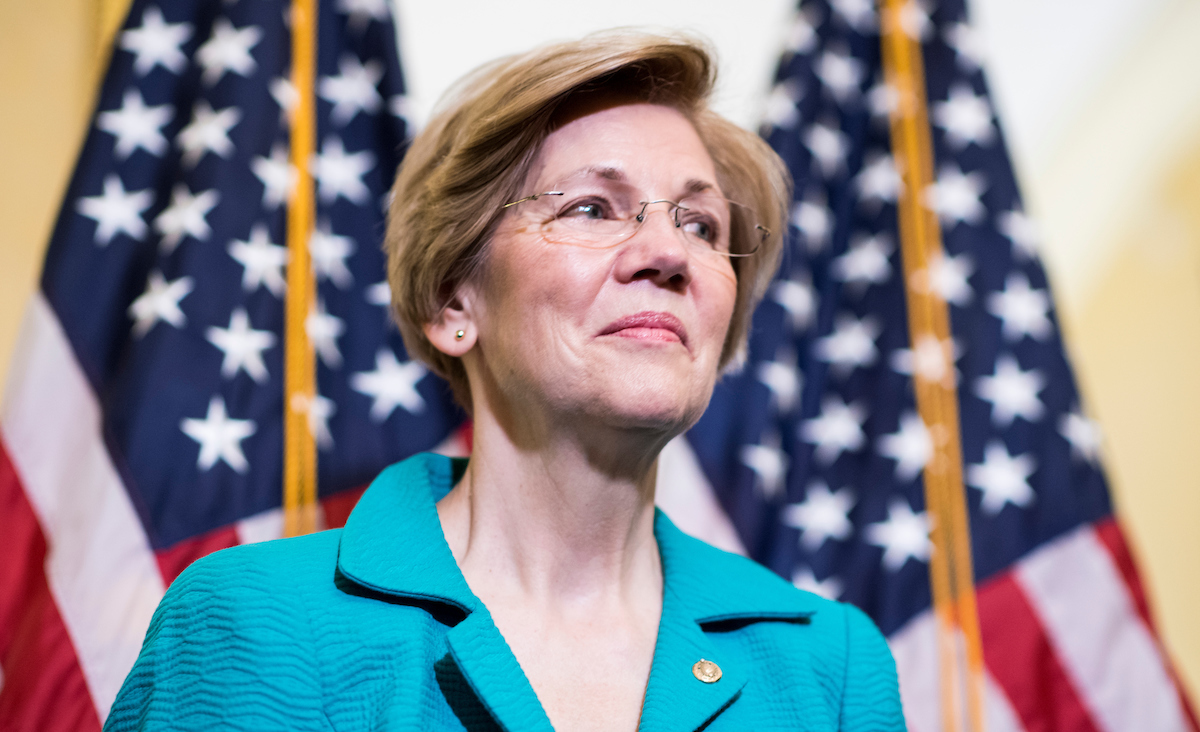Warren Responds to Trump’s ‘Pocahontas’ Nickname, Defends Family History
Massachusetts Democrat spoke about her family’s Oklahoma background

Sen. Elizabeth Warren directly confronted Trump’s nickname for her Wednesday.
The president has a habit, on Twitter and elsewhere, of referring to the liberal senator as “Pocahontas.” It’s directed at Warren’s claim of Native American heritage in her family tree, among the campaign flashpoints when she first ran for Senate.
“I get why some people think there’s hay to be made here. You won’t find my family members on any rolls, and I’m not enrolled in a tribe,” Warren said. “And I want to make something clear. I respect that distinction. I understand that tribal membership is determined by tribes — and only by tribes. I never used my family tree to get a break or get ahead. I never used it to advance my career.”
The Democrat from Massachusetts made her remarks in an address to the National Congress of American Indians, where she also talked about the difference between the Disney version of Pocahontas and the real-life woman.
Watch: Warren Rebukes Trump’s ‘Pocahontas’ Nickname in Speech to National Congress of American Indians
The Republican National Committee noticed Warren’s speech, calling her “Fauxcahontas” in a message to reporters and citing reports questioning the validity of her claims about her heritage.
“She failed to apologize to the actual Native Americans in the audience and continued to insist that she really is a Native American, despite the long list of evidence that indicates otherwise,” Research Director and Deputy Communications Director Michael Reed said in an email.
Warren spoke about her family’s history in Oklahoma and what she wants to do in politics to benefit tribal communities across the country.
“My mother’s family was part Native American,” Warren said. “And my daddy’s parents were bitterly opposed to their relationship. So, in 1932, when Mother was 19 and Daddy had just turned 20, they eloped.”
“Together, they survived the Dust Bowl and the Great Depression. They saved up to buy a home. They raised my three older brothers, and they watched as each one headed off to serve in the military,” she said.
Warren highlighted the lack of access to the banking system faced by many American Indians, as well as the lack of modern infrastructure on many reservations.
“Rural broadband access on tribal lands is worse than anywhere else in America, and more than a third of those living on tribal lands don’t have high-speed broadband at all. Without it, Native communities are simply shut out of a 21st-century economy,” Warren said. “It’s time to make real investments in Indian country to build opportunity for generations to come.”





